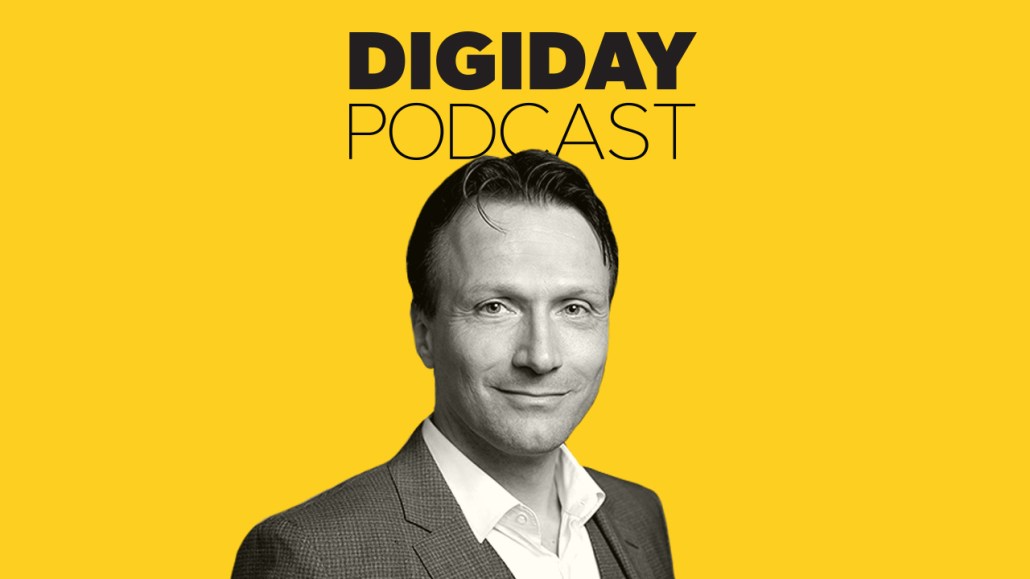Secure your place at the Digiday Media Buying Summit in Nashville, March 2-4

Subscribe: iTunes | Google Play | Stitcher | Anchor
This week, it was reported that Condé Nast is going to put all its titles behind a paywall in the U.S. by the end of the year. Internationally, however, the magazine publisher is taking smaller, more cautious steps towards reader revenue.
“We have run experiments with paywalls in India,” said Wolfgang Blau, president of Condé Nast International, at a Digiday live podcast event held at Condé Nast International in London on Tuesday evening. “Paywalls need scale. You need a potentially huge audience. As soon as you have a paywall, you need to frustrate your loyalists before they sign up. Once we have migrated all our websites on the same platform, we will be in the position to run these experiments centrally. We’ll test various forms of hybrid paywalls.”
Blau also discusses centralization of Condé Nast International, taking a Vogue-first approach in the international market and how to balance the imperative to centralize with maintaining the uniqueness of brands on the local level. Edited highlights below:
Vogue-first does not mean neglecting other brands.
“Three to four years ago, we organized ourselves primarily around countries. We’ve shifted towards an operational model of organizing around brands. It requires a shared agreement on what the brand stands for. We had to prioritize brands and sequence investments. That’s how we arrived at the principle of Vogue-first. Our centralization is not driven by cost-cutting. We reduced staff between 2015 and early 2018 by about 30 percent. We’ve added 300 staff globally in different areas. Now, we’re roughly at 3,600. The motive is to modernize our middle and back office like CMS. Our Vogues had 22 different content management systems. It’s in the interest of greater agility and innovation. What we’re building requires prioritization. It’s not a decision against other brands. We could never have unlocked many investments that are now arriving at the other brands if we wanted to do everything at once.”
The magazine does not reach all readers.
“We’re challenging the notion that the magazine is the manifestation of the brand. We are no longer that. It’s a hugely important voice. If we think that the magazine is the purest and cleanest manifestation of the brand, the majority of the people who interact with the brand will never touch the magazine.”
Vogue needs to be a voice of responsibility.
“Vogue has a huge responsibility. The textile industry is one of the top causes of CO2 emissions. Fast fashion has short life cycles. T-shirts are worn once because you don’t want to be on Instagram wearing the same thing twice. Vogue has touched on these issues. Condé Nast Spain went carbon-neutral 10 years ago. Vogue sits at two fault lines of global, cultural and political earthquakes. One is the conversation about climate change and the second is how men and women treat women in society. We don’t want to enter politics but we want to inspire designers and promote labels that try new ways of productions.”
We are hosting our next live podcast event on February 7 in New York City at Vox Media headquarters. Please join us for a conversation between Brian Morrissey and Vox Media publisher Melissa Bell. Sign up here.
More in Media

WTF is a creator capital market?
What is a creator capital market, what does it mean for creators looking to diversify revenue, and why is it so closely tied to crypto?

Media Briefing: Publishers explore selling AI visibility know-how to brands
Publishers are seeing an opportunity to sell their AI citation playbooks as a product to brand clients, to monetize their GEO insights.

Creators eye Snapchat as a reliable income alternative to TikTok and YouTube
Figuring out the Snapchat formula has been very lucrative for creators looking for more consistent revenue on a less-saturated platform.








